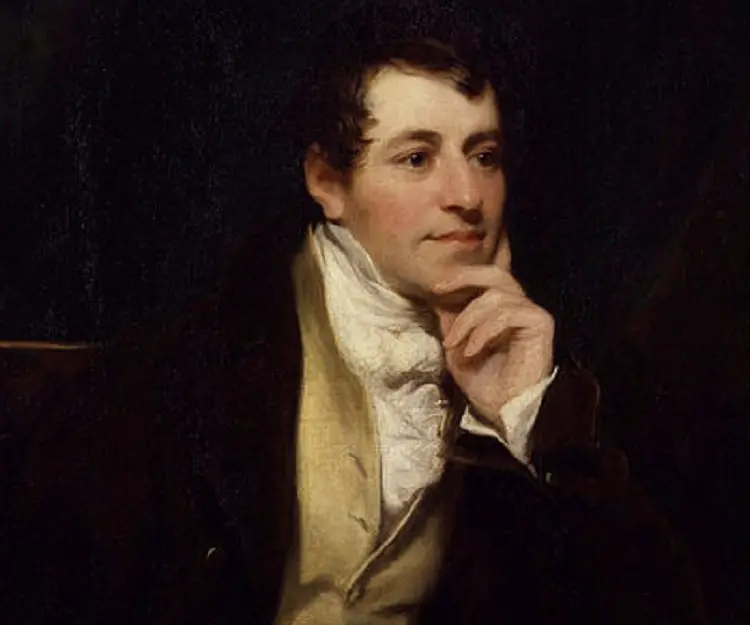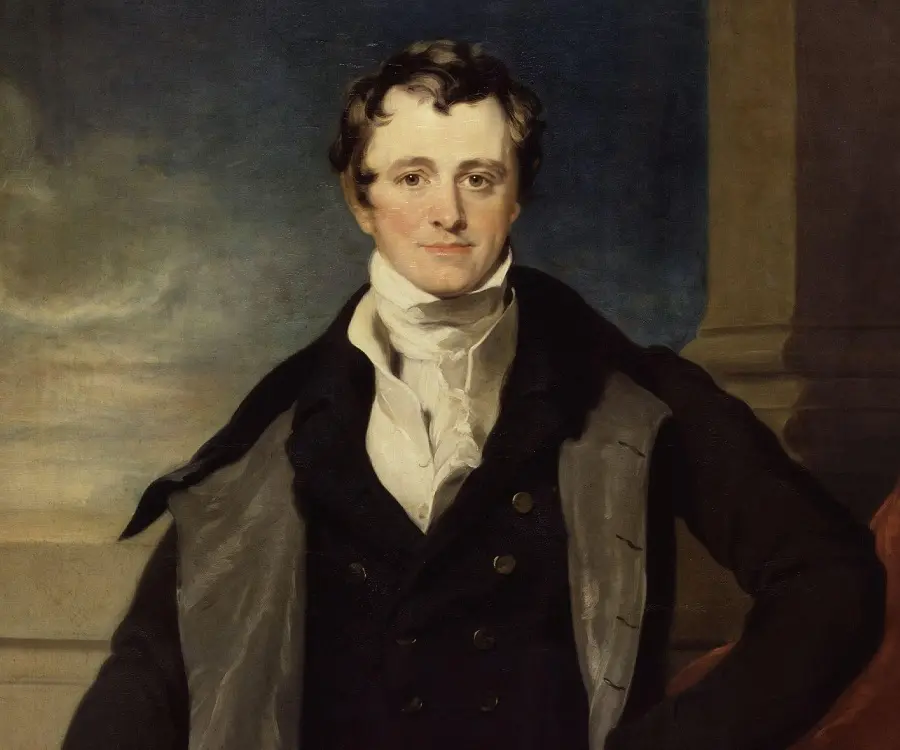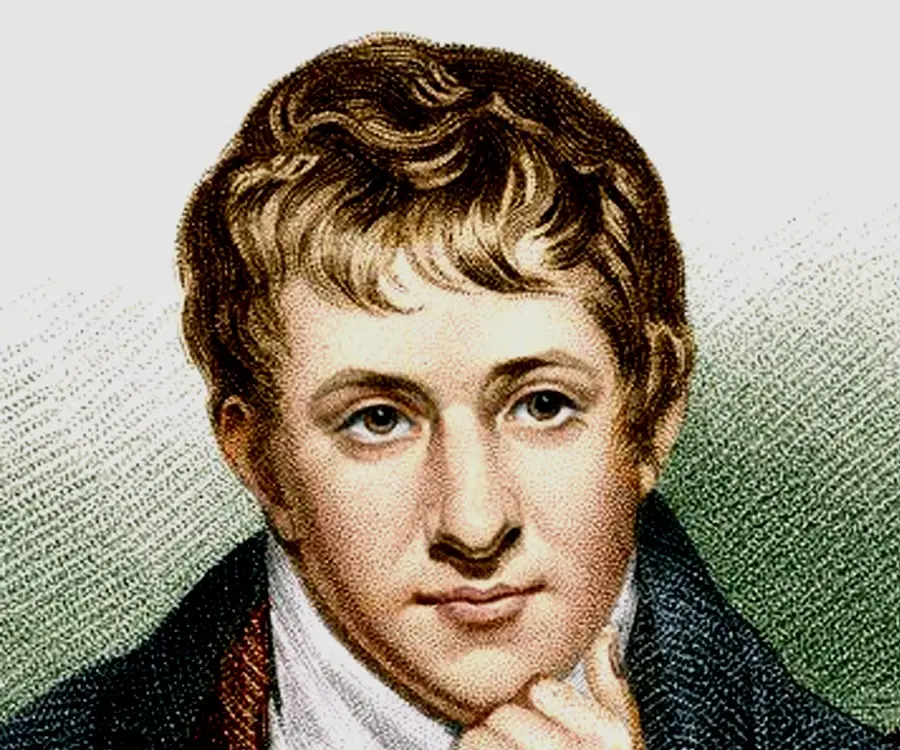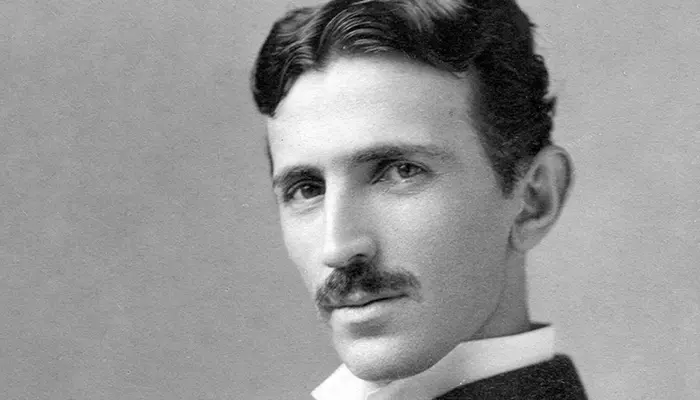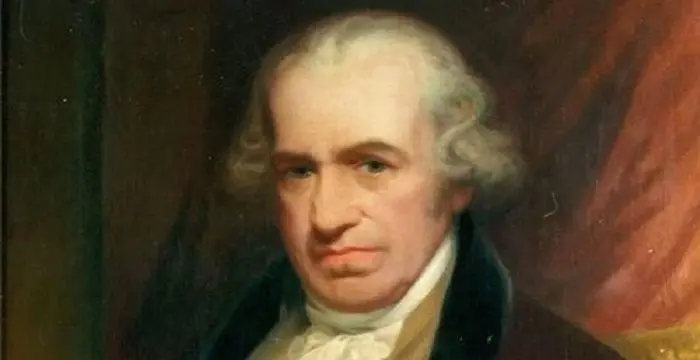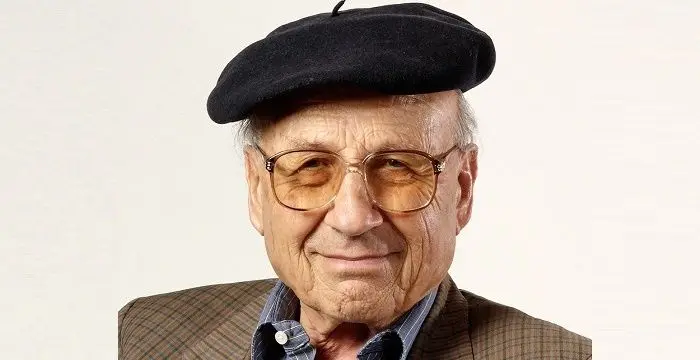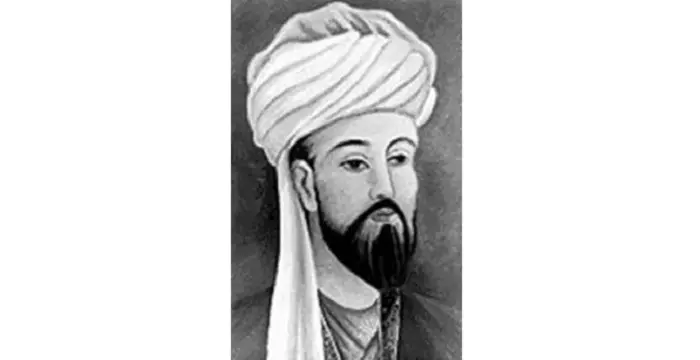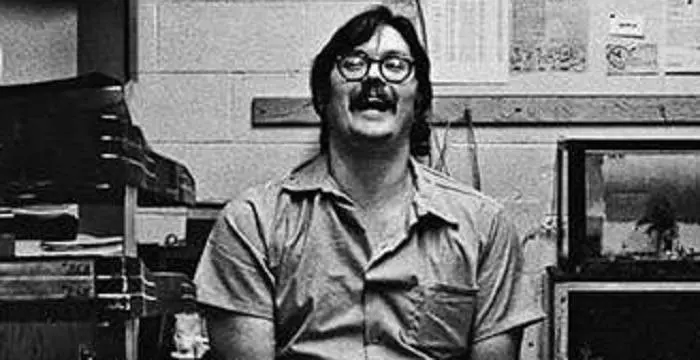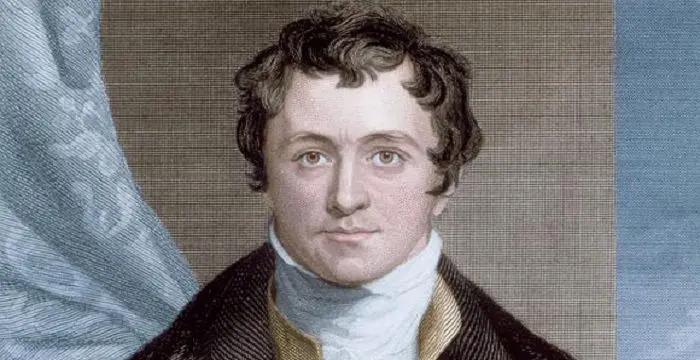
Humphry Davy - Inventor of Davy Lamp, Facts and Childhood
Humphry Davy's Personal Details
Sir Humphry Davy was a British chemist who made major contributions to the discoveries of chlorine and iodine
| Information | Detail |
|---|---|
| Birthday | December 17, 1778 |
| Died on | May 29, 1829 |
| Nationality | British |
| Famous | Inventors & Discoverers, Chemists, Inventor of Davy Lamp |
| Hobbies | Hiking, Hunting, Fishing, Writing Poetry, Hiking through mountains, Collecting Minerals |
| Siblings | John Davy |
| Known as | Humphrey Davy, Sir Humphrey Davy |
| Discoveries / Inventions |
|
| Birth Place | Penzance |
| Gender | Male |
| Sun Sign | Sagittarius |
| Born in | Penzance |
| Famous as | Inventor of Davy Lamp |
| Died at Age | 50 |
Humphry Davy's photo
Who is Humphry Davy?
Sir Humphry Davy was a British chemist who made major contributions to the discoveries of chlorine and iodine. He discovered several alkali and alkaline earth metals, and isolated and named them. Born to middle-class parents in Cornwall, England, Davy was an intelligent, curious and artistic minded individual. He lost his father while he was just in his teens and was apprenticed to a famous surgeon with a large practice. As a young boy he dreamed of becoming a poet and had composed several verses which displayed his artistic nature. However, after starting to work in the apothecary of the surgeon, he realized that he loved science more than poetry and abandoned the latter in favor of the former. He eventually became a chemist and attracted the attention of Gregory Watt and Davies Giddy. Impressed by the young man’s talents, Giddy gave him a well-equipped chemistry laboratory where Davy could perform his experiments. He was then appointed the chemical superintendent of the Pneumatic Institution and in this position he studied the possible therapeutic uses of various gases and suggested the anesthetic use of nitrous oxide in human surgery. He was also an inventor who invented the Davy lamp, which allowed miners to work safely in close contact with flammable gases
// Famous Inventors & Discoverers
Nikola Tesla
Nikola Tesla was a Serbian-American inventor, best known for his development of alternating current electrical systems. This biography of Nikola Tesla provides detailed information about his childhood, life, achievements, works & timeline.
Thomas Newcomen
Thomas Newcomen was a British inventor who developed the world’s first steam engine. Browse through this biography to learn in details about his life, career, works and timeline.
Erno Rubik
The famous inventor and educationist, Erno Rubik is known world-wide for his invention the ‘Rubik’s Cube’. To know more about the childhood, profile, timeline and career of this famous architect-inventor read on.
Childhood & Early Life
Humphry Davy was born on 17 December 1778 in Penzance in Cornwall, England, into a middle-class family. He was the eldest son and had four siblings.
He received his primary education from Penzance school and Truro Grammar School.
His father, Robert, died in 1794 plunging the family into dire financial situation. Being the eldest son, Humphry was apprenticed to John Bingham Borlase, a surgeon with a large practice in Penzance.
Blessed with an artistic mind, the boy used to write poems and dreamed of becoming a poet. However, after he started to work in the apothecary he developed an even stronger interest in chemistry and experimentation and decided to abandon poetry in favor of science.
While working as an apprentice he also embarked on a journey of self-education. He was especially influenced by Lavoisier's famous work, ‘Traité élémentaire de chimie’ which he used as a guide in his chemistry experimentation.
Career
Humphry Davy became a talented chemist and his intelligence and skills impressed Gregory Watt and Davies Giddy (later Gilbert). They recommended him to Dr. Thomas Beddoes for the position of superintendent of the newly founded Pneumatic Institution in Bristol and he was appointed to the position in October 1798.
The Pneumatic Institution was founded to study the possible therapeutic uses of various gases and to examine the idea that certain diseases might be cured by the inhalation of gases. As the superintendent, Davy studied the composition of the oxides and acids of nitrogen and persuaded others in the scientific fraternity to look into the effects of inhaling nitrous oxide.
In 1800, the account of his experimental works was published as ‘Researches, Chemical and Philosophical’. The popularity of this publication established him as a reputed chemist and soon he was invited to lecture at the newly founded Royal Institution of Great Britain, in London.
In 1801, he left the Pneumatic Institution and moved to London and was appointed in the Royal Institution as an assistant lecturer in chemistry, director of the chemical laboratory, and assistant editor of the journals of the institution.
Davy gave his first lecture on the relatively new subject of 'Galvanism' on 25 April 1801. It garnered rave reviews and within a period of months he became a very popular lecturer.
In June 1802 Davy was nominated to full lecturer at the Royal Institution of Great Britain. He was just 23 years old at that time.
He became a Fellow of the Royal Society in November 1804 and its secretary in 1807. The same year, he also became one of the founding members of the Geological Society. Years later, in 1820, he would become president of the Royal Society.
In 1807, he discovered potassium which he derived from caustic potash (KOH). Potassium was the first metal that was isolated by electrolysis. As a pioneer in the field of electrolysis, he used the voltaic pile to split common compounds and thus prepare many new elements. He was the first to isolate magnesium, boron, and barium.
He traveled to France in 1813 where he was asked by Gay-Lussac to investigate a mysterious substance isolated from sea-weed by Bernard Courtois. Davy worked in his hotel room and showed that the “mysterious substance” was an element, which is now called iodine.
Upon his return to England in 1815, Davy experimented with lamps for use in coal mines after being asked to design a safety lamp that would provide illumination without exploding in flammable atmospheres. After a series of experiments he devised the miner's safety lamp though he made no attempts to patent it.
Major Works
Sir Humphry Davy is best remembered as a pioneer in the field of electrolysis and for his major contributions to the discoveries of the elemental nature of chlorine and iodine.
The Davy lamp which he devised is an important invention of his. The safety lamp, consisting of a wick lamp with the flame enclosed inside a mesh screen was originally created for use in coal mines, to reduce the danger of explosions due to the presence of methane.
Awards & Achievements
Humphry Davy was knighted by the king in 1812 in recognition of his great scientific discoveries and was awarded a baronetcy in 1819.
He was awarded the Rumford medal in 1816 for inventing the Davy lamp.
In 1827, he won the Royal Society’s Royal Medal for his 1826 Bakerian lecture “On the Relation of Electrical and Chemical Changes”.
Personal Life & Legacy
He married a wealthy widow, Jane Apreece, in 1812.
Sir Humphry Davy suffered from poor health during his later years. His body was considerably weakened by a series of strokes and he died in a hotel room in Geneva, Switzerland, on 29 May 1829, at the age of 50.
The Royal Society of London has awarded the Davy Medal—named in his honor—annually since 1877 "for an outstandingly important recent discovery in any branch of chemistry."
// Famous Chemists
Henry Cavendish
Henry Cavendish was a theoretical chemist and physicist, renowned for discovery of hydrogen and calculation of the mass of earth. To know more about his childhood, profile, timeline and career read on
Walter Kohn
Nobel Laureate Walter Kohn was an Austrian-born American theoretical chemist and physicist. Check out this biography to know about his childhood, life, achievements, works & timeline.
Jabir Ibn Hayyan
Jabir Ibn Hayyan was a medieval era polymath. Check out this biography to know about his life, works and achievements.
Humphry Davy's awards
| Year | Name | Award |
|---|---|---|
Other | ||
| 0 | 1805 - Copley Medal | |
| 0 | 1816 - Rumford Medal | |
| 0 | 1827 - Royal Medal | |
Humphry Davy biography timelines
- // 17th Dec 1778Humphry Davy was born on 17 December 1778 in Penzance in Cornwall, England, into a middle-class family. He was the eldest son and had four siblings.
- // 1794His father, Robert, died in 1794 plunging the family into dire financial situation. Being the eldest son, Humphry was apprenticed to John Bingham Borlase, a surgeon with a large practice in Penzance.
- // Oct 1798Humphry Davy became a talented chemist and his intelligence and skills impressed Gregory Watt and Davies Giddy (later Gilbert). They recommended him to Dr. Thomas Beddoes for the position of superintendent of the newly founded Pneumatic Institution in Bristol and he was appointed to the position in October 1798.
- // 1800In 1800, the account of his experimental works was published as ‘Researches, Chemical and Philosophical’. The popularity of this publication established him as a reputed chemist and soon he was invited to lecture at the newly founded Royal Institution of Great Britain, in London.
- // 1801In 1801, he left the Pneumatic Institution and moved to London and was appointed in the Royal Institution as an assistant lecturer in chemistry, director of the chemical laboratory, and assistant editor of the journals of the institution.
- // 25th Apr 1801Davy gave his first lecture on the relatively new subject of 'Galvanism' on 25 April 1801. It garnered rave reviews and within a period of months he became a very popular lecturer.
- // Jun 1802In June 1802 Davy was nominated to full lecturer at the Royal Institution of Great Britain. He was just 23 years old at that time.
- // 1804 To 1820He became a Fellow of the Royal Society in November 1804 and its secretary in 1807. The same year, he also became one of the founding members of the Geological Society. Years later, in 1820, he would become president of the Royal Society.
- // 1807In 1807, he discovered potassium which he derived from caustic potash (KOH). Potassium was the first metal that was isolated by electrolysis. As a pioneer in the field of electrolysis, he used the voltaic pile to split common compounds and thus prepare many new elements. He was the first to isolate magnesium, boron, and barium.
- // 1812 To 1819Humphry Davy was knighted by the king in 1812 in recognition of his great scientific discoveries and was awarded a baronetcy in 1819.
- // 1812He married a wealthy widow, Jane Apreece, in 1812.
- // 1813He traveled to France in 1813 where he was asked by Gay-Lussac to investigate a mysterious substance isolated from sea-weed by Bernard Courtois. Davy worked in his hotel room and showed that the “mysterious substance” was an element, which is now called iodine.
- // 1815Upon his return to England in 1815, Davy experimented with lamps for use in coal mines after being asked to design a safety lamp that would provide illumination without exploding in flammable atmospheres. After a series of experiments he devised the miner's safety lamp though he made no attempts to patent it.
- // 1816He was awarded the Rumford medal in 1816 for inventing the Davy lamp.
- // 1826 To 1827In 1827, he won the Royal Society’s Royal Medal for his 1826 Bakerian lecture “On the Relation of Electrical and Chemical Changes”.
- // 29th May 1829Sir Humphry Davy suffered from poor health during his later years. His body was considerably weakened by a series of strokes and he died in a hotel room in Geneva, Switzerland, on 29 May 1829, at the age of 50.
// Famous Sagittarius Celebrities peoples
Billie Eilish
Billie Eilish Pirate Baird O’Connell is an American singer and songwriter. Check out this biography to know about her childhood, family, personal life, birthday, etc.
Jacelyn Reeves
Jacelyn Reeves is a former flight attendant who once had a fling with Clint Eastwood. Check out this biography to know about her birthday, childhood, family life, achievements and fun facts about her.
Edmund Kemper
Edmund Kemper is a convicted serial killer from America who murdered ten people. Check out this biography to know about his childhood, life, crimes and other facts about him.
Pietro Boselli
Pietro Boselli is an Italian model, engineer, teacher, and fitness athlete who became famous as the ‘world’s sexiest math teacher’. Check out this biography to know about his birthday, childhood, family life, achievements and fun facts about him.
Niqoles Heard
Lil Niqo is an American rapper and musical artist. Let’s take a look at his family and personal life including age, date of birth, net worth, girlfriends, and fun facts.
Ted Nugent
Ted Nugent is a hard rock musician known for his hits ‘Stranglehold’ and ‘Cat Scratch Fever’. This biography of Ted Nugent provides detailed information about his childhood, life, achievements, works & timeline.
Humphry Davy's FAQ
What is Humphry Davy birthday?
Humphry Davy was born at 1778-12-17
When was Humphry Davy died?
Humphry Davy was died at 1829-05-29
Where was Humphry Davy died?
Humphry Davy was died in Geneva
Which age was Humphry Davy died?
Humphry Davy was died at age 50
Where is Humphry Davy's birth place?
Humphry Davy was born in Penzance
What is Humphry Davy nationalities?
Humphry Davy's nationalities is British
What is Humphry Davy hobbies?
Humphry Davy's hobbies is Hiking, Hunting, Fishing, Writing Poetry, Hiking through mountains, Collecting Minerals
Who is Humphry Davy siblings?
Humphry Davy's siblings is John Davy
What is Humphry Davy's inventions/discoveries?
Davy Lamp, Arc Lamp was invented (or discovered) by Humphry Davy
What is Humphry Davy's sun sign?
Humphry Davy is Sagittarius
How famous is Humphry Davy?
Humphry Davy is famouse as Inventor of Davy Lamp
